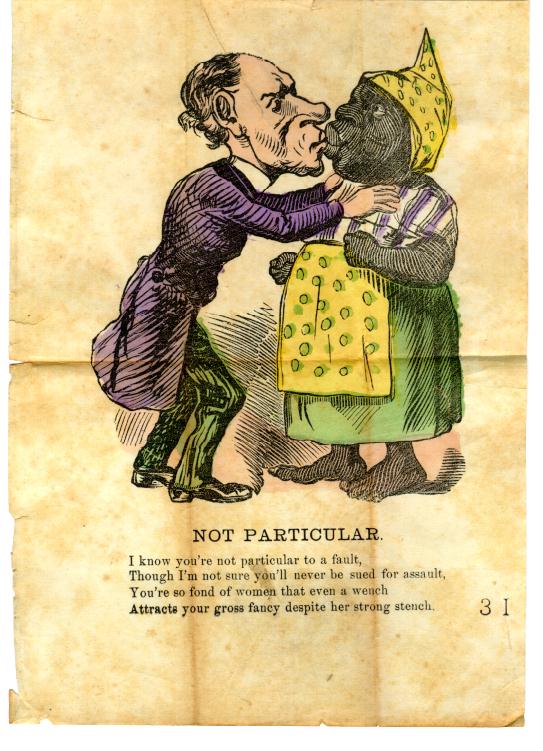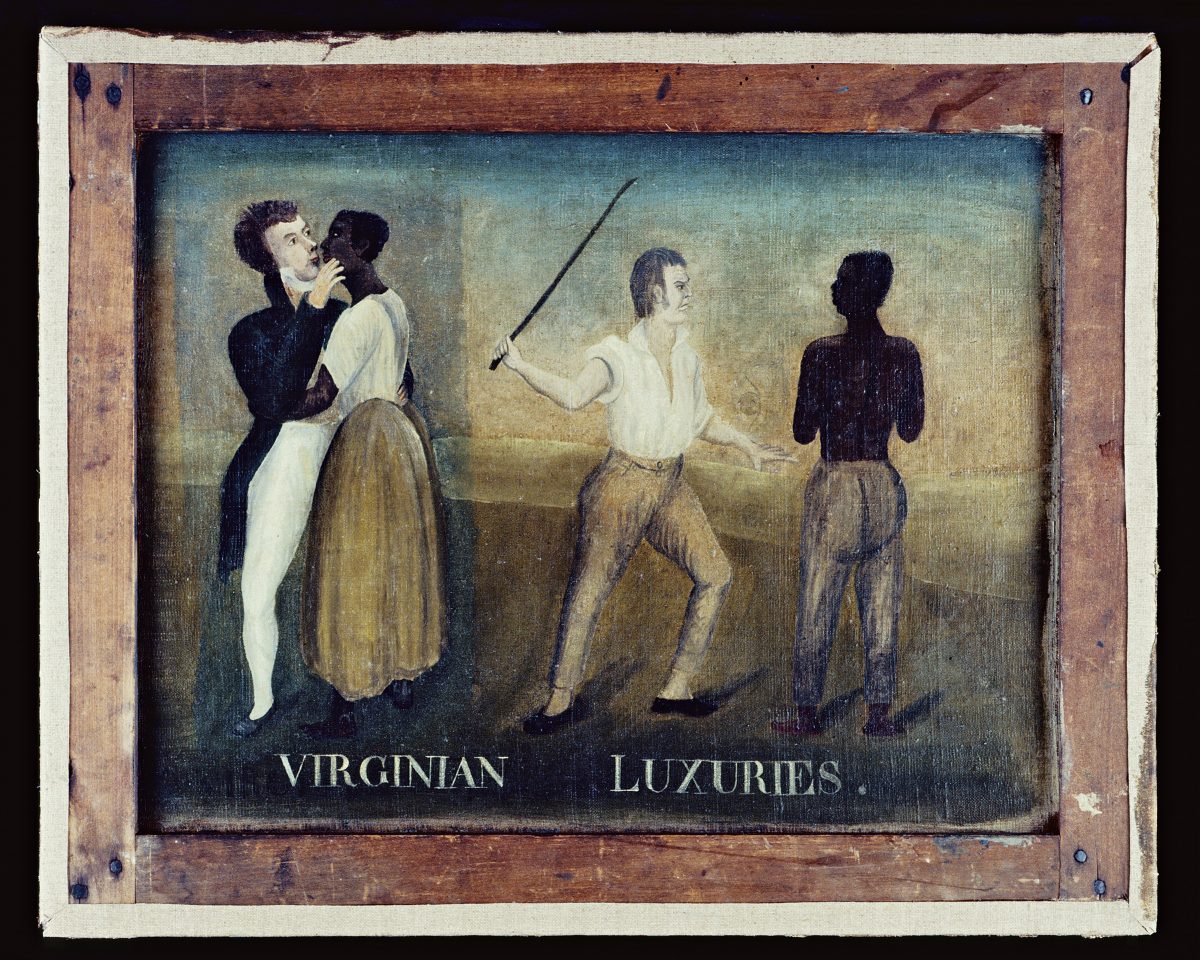Fighting For Miscegenation - How the Loving v. Virginia Case Changed Marriage Laws Across the U.S.
Miscegenation in the U.S.

Unknown Artist, 1900s, A postcard depicting a white man kissing a black woman, AuthenticHistory.com
Miscegenation and interracial marriage were first enforced during the colonial era for plantation owners to increase the number of slaves they owned. The offspring of African-American slaves and indentured white female servants would be slaves like their fathers. In 1681, Lord Baltimore outlawed plantation owners from encouraging interracial marriage. Miscegenation ceased to serve a useful purpose for slave owners, and since the children of interracial marriages were an overall financial burden, miscegenation fell out of practice and was outlawed in Virginia in 1691.

Unknown Artist, 1825, "Virginian Luxuries", The Colonial Williamsburg Foundation
Interracial marriage was outlawed in 38 states at the start of the 19th century, and the eugenics movement rose to prominence in the early 20th century. For the good of humanity, it believed in preventing those with "inferior" genes from having children. As it gained popularity in the U.S., states like Virginia passed the Racial Integrity Act in 1924. This law was intended to prevent interracial marriage between whites and blacks because the children of such unions were inferior. People had to declare whether they were "black," "white," or "mixed" to marry. People had to swear they weren't "habitual criminals, idiots, imbeciles, hereditary epileptics, or insane" to get married. By equating interracial marriage with mental illnesses, the Racial Integrity Act created a frontier in marriage rights.
Early Segregation
The Supreme Court Case